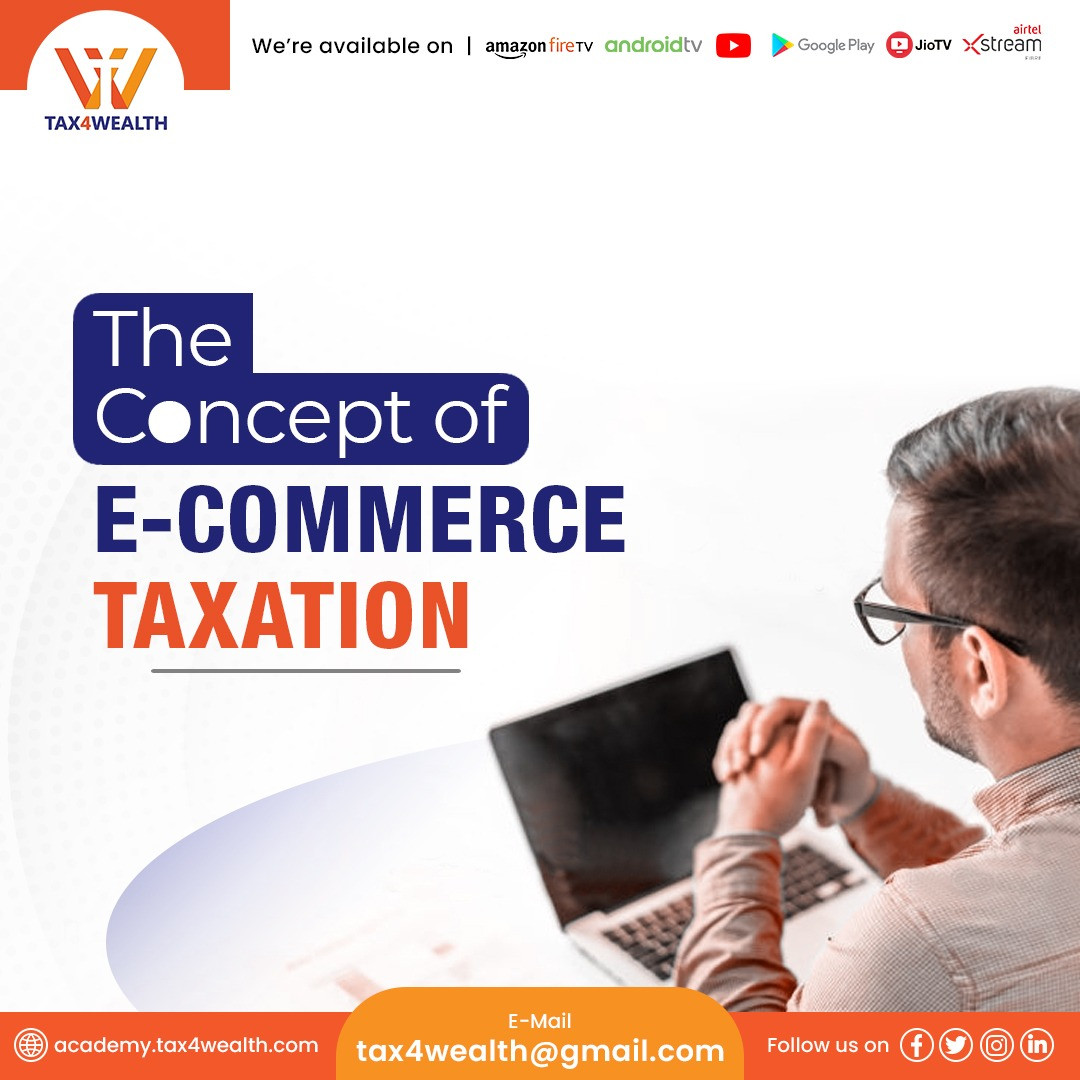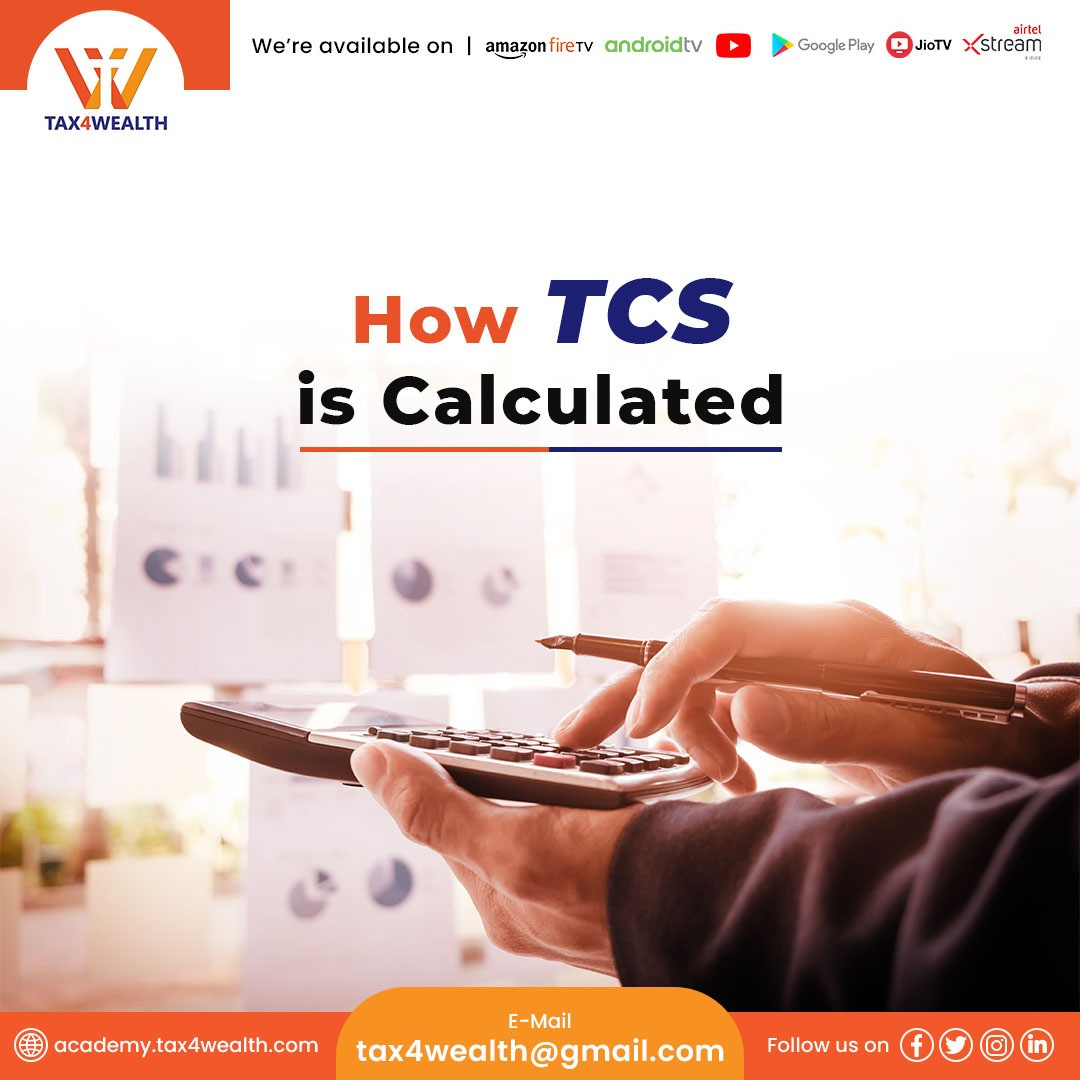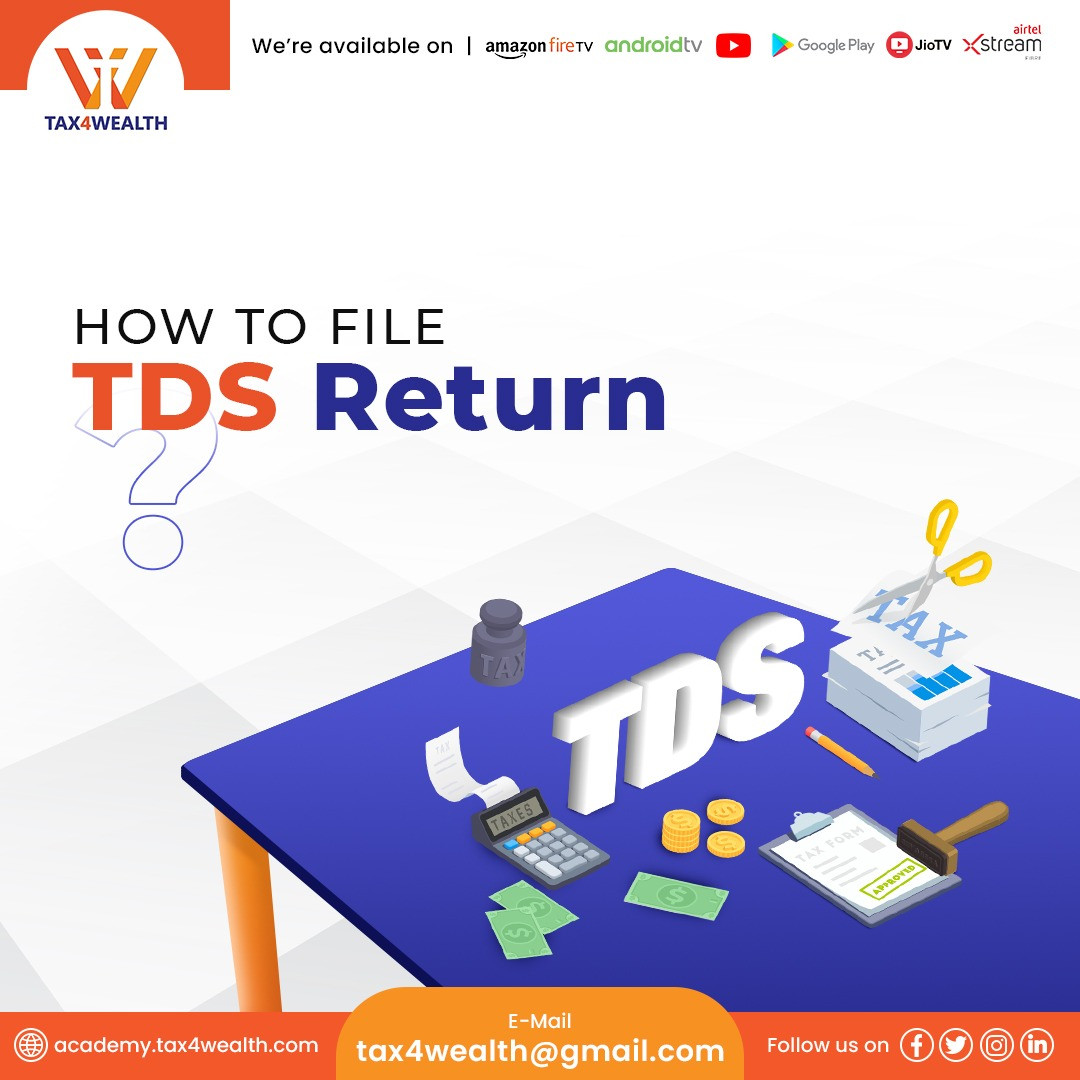
The Concept of E-Commerce Taxation
Introduction
With the expansion in communication and information technology, the procurement and supply of digital goods and services have drastically changed and is also expanding not only in India but also across the globe. Today, it is the simply the era of e-commerce that is growing faster than ever globally as well as nationally as a whole.
E-commerce (electronic commerce) refers to the activity of buying and selling of goods and/or services electronically or with the use of internet or through a digital platform. Some of the examples of E-commerce portals operating in India are Amazon, Flipkart, Myntra, Paytm, Zomato, Swiggy etc.
The business model of E-commerce have however, created some new challenges in respect of taxation. There are direct tax issues related to e-commerce transactions which are difficult to categorize into according to the nature of payment and establish a link between jurisdiction, activity and taxable transaction and identifying the income purpose of the taxpayer.
Considering the growth in the number of e-commerce transaction and e-commerce businesses, The Government of India has introduced some provisions under Income Tax Act, 1961 for taxation of such e-commerce transactions. The aforesaid provisions were introduced in the Finance Act, 2016 and Finance Act, 2020 for the financial year 2016 and 2020 respectively. The details whereof are furnished below;
Provisions under Income Tax Act For E-Commerce Transaction
A. Equalization Levy:
Levy on the Advertisements published online provided by Non Residents:
Equalization Levy was introduced under the provisions under Finance Act, 2016. The aforesaid scheme is administered by provisions Chapter VIII to Finance Act. Equalization levy provides the details of taxation of the transactions made digitally. Generally, it is a considered as a direct tax which is levied on the income if the Non-resident e-commerce operator. However, it is quite different from income tax. Thus, any receipt that is subject to equalization levy is exempted from income tax under the provision of clause 50 of Section 10 of Income Tax Act, 1961.
In the beginning, Chapter VIII of Finance Act, 2016 dealt with the provisions of equalization levy which was imposed at a rate of 6% on consideration received for the below mentioned specified services as rendered by a non-resident service provider:
- Advertisement published online
- Any provision for digital advertising space or any facility or service for the purpose of online advertisement
- Service as notified by Central Government.
Every person, being a resident and carrying on business or profession or a non-resident having a permanent establishment in India is liable to deduct the equalisation levy from the amount paid or payable to a non-resident in respect of the specified service at the rate of 6%, if the aggregate amount of consideration for specified service in a previous year exceeds one lakh rupees.
Scope of Equalization Levy in respect of E-commerce transactions on sale of goods or provision of services;
According to the provisions of the Finance Act, 2020, the scope of Equalization levy has been extended with certain corrections and amendments with the introduction of new sections under Chapter VIII of the Finance Act, 2016. The aforesaid amendments were made for inclusion of consideration receivable by an e-commerce operator in respect of supply of e-commerce services provided by it the following persons;
- A resident Indian or
- A non-resident Indian using the IP address in India
A non-resident in the below mentioned certain specific circumstances:
- Sale of the advertisement targeting the customer who is a resident Indian and can access the advertisement through the IP address in Indian location.
- Sale of data that is collected from a person who is a resident Indian or a person who is using the IP address of Indian location.
The rate of the aforesaid levy will be charged at 2% and the same will be applicable from or on 1st October 2020. Apart from that, a consequential amendment has also been made in Section 10(50) of the Act in order to provide the income arised from supply of e-commerce services which chargeable to equalization levy will be exempted from income tax.
The following are some of the important terms which are defined under Section 164 of the Finance Act, 2016;
E-commerce Supply or Services:
The term E-commerce supply means the following;
(i) The online sale of goods by e-commerce operator which are owned by him; or
(ii) The E-Commerce operator is providing the online provision of services; or
(iii) The E-Commerce Operator is providing both online sale of goods or provision of services; or
(iv)The combination of any of the above-mentioned clauses or activities listed in clause (i), (ii) or clause (iii);
E-commerce Operator:
The term "E-Commerce Operator" means the person who manages and operates the electronic or digital platform meant for online sale of goods or online provisions of services or both.
The Equalization levy will not be charged on the E-commerce transaction under certain cases. The details whereof are furnished below;
(i) If the E-commerce operator has a permanent establishment in India and the supply of services is connected with the permanent establishment effectively; or
(ii) In case the equalization levy is imposed under section 165 of the Finance Act 2016 on online advertisement services as equalization levy; or
(iii) The annual turnover or sales or gross receipts of the e-commerce operator is not exceeding Rs. 2 crore during the previous financial year from the date providing the supply or service by the E-commerce operator.
It is to be noted that each e-commerce operator has to make the payments under Equalization levy quarterly. A table containing thereof is provided below;
|
Quarter Ending |
Due date |
|
30th June |
07th July |
|
30th September |
07th October |
|
31st December |
07th January |
|
|
31st March |
TDS on E Commerce Transaction:
At the time of credit of the amount for sale of goods and/or services to the account of the participant of e-commerce or at the time of making the payment to the e-commerce participant the E-commerce operator deducts TDS at the rate of 1% of the gross amount of goods and/or services. The aforesaid provision became effective from 1 October 2020. The TDS provisions for E-commerce Operators has been provided under Section 194-O of the Income Tax Act. For which the following terms needs to be understood clearly.
E-Commerce:
It means supply of goods and/or services over the electronic or digital network including the digital products.
E-commerce Operator:
It means the person who manages and operates the electronic or digital platform meant for online sale of goods or online provisions of services or both.
E-commerce Participant:
It means a person who is a resident in India and is engaged in sale of goods and/or services through digital platforms for e-commerce including digital products.
The below mentioned points needs to be kept in mind for the purpose of Section 194-O of the Income Tax Act:
- Any payment by buyer or recipient of the goods and services respectively directly to the e-commerce participant for the sale of goods and/or services that is facilitated by e-commerce operator will be considered to be paid by the e-commerce operator and TDS will be deducted on the said amount.
- There will be no deduction on the end of the e-commerce operator under Section 194-O of the Income Tax Act, Until and unless the below mentioned conditions are fulfilled;
In case the E-commerce participant is an individual or Hindu Undivided Family (HUF); and gross amount for sale of goods and/or services during the particular financial year is less than Rs. 5 Lakhs and
In case the E-commerce participant has provided the details of his Permanent Account Number (PAN) or Aadhar number to the E-commerce operator;
In case the TDS has been deducted with regard to the transaction under Section 194-O of the Income Tax Act, then, TDS must not be deducted under the provisions of Section of Chapter XVII-B of the Income Tax Act on any such transaction. However, TDS provisions will continue to apply on the receivable amount by the e-commerce operator for the advertisement hosting and any other services not included under the aforesaid section.
Considering the purpose of Section 194-O of the Income Tax Act, e-commerce operator will be considered as the person liable to pay to the e-commerce participant.
E-Commerce Transaction under GST
Apart from the above-mentioned provisions under Income Tax Act, the E-commerce transactions are also taxable under GST. According to the provisions of Section 24 of the CGST Act, E-commerce operators are needed to get compulsorily get themselves registered under GST irrespective of their annual turnover in respect of the below mentioned cases;
- The person who are liable to pay taxes under the provisions under sub-section (5) of section 9 (Section 24(iv)) of the Goods and Services Tax Act;
- Every E-Commerce operator needs to collect taxes at source (TCS) under Section 52 (Section 24(x) of the Goods and Service Tax Act;
It is to be noted that a e-commerce transaction is taxable under both the taxation aspect under Income Tax Act as well as under the Goods and Service Tax Act.
Related News
No comments yet, Be the first to comment.













